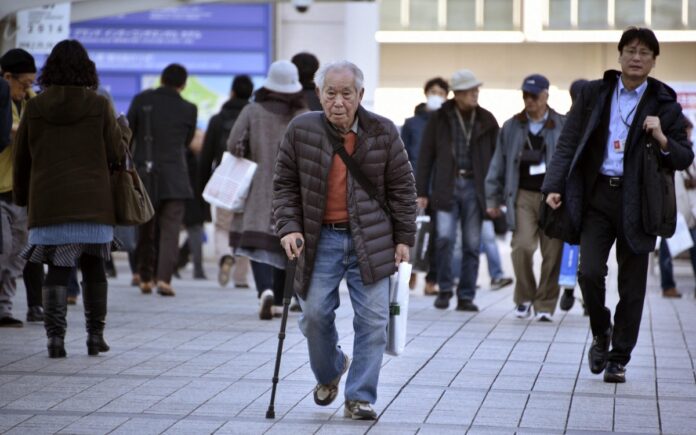Tokyo: Japan’s workforce is under severe pressure as two-thirds of companies report significant business challenges caused by labor shortages, according to a Reuters survey released on Thursday. This comes as the nation grapples with an aging and shrinking population, a trend that poses long-term risks to economic growth.
Labor shortages are especially acute in non-manufacturing sectors and among small firms, the government noted. These shortages have reached unprecedented levels, sparking fears that supply-side constraints could stifle economic momentum.
Impact on Businesses
The survey revealed that 66% of respondents are experiencing serious or fairly serious impacts from the labor crunch, while 32% reported milder effects. A manager at a railroad company highlighted the gravity of the situation, stating, “It goes without saying this drives up personnel costs, but it could even pose a business continuity risk.”
In 2024, labor shortages contributed to a record 342 business bankruptcies, a 32% increase from the previous year, according to data from credit research firm Teikoku Databank.
Worsening Trends
Nearly a third of surveyed firms said the labor shortage is worsening, while only 4% observed improvements. The majority (56%) stated the situation remains unchanged.
The survey, conducted by Nikkei Research for Reuters between Dec. 24 and Jan. 10, reached out to 505 companies, with 235 responding anonymously.
Addressing the Labor Shortfall
To counter the labor crunch, companies are adopting various measures:
- Intensified Recruitment: About 69% of respondents are focusing on hiring new graduates.
- Extended Retirement Policies: Around 59% are raising retirement ages or rehiring retirees.
Currently, the official retirement age is 60 for most firms, but many companies allow employees to work until 65, as shown in a Health Ministry poll last year.
Investment Priorities
For 2025, businesses are prioritizing capital investment (69%) and human resources-related investments, including wage hikes (63%). “What’s essential are wage hikes for retaining employees and capital investment for rationalizing production,” said a representative from a chemicals company.
This trend aligns with government policies promoting economic growth through higher wages and increased investments.
Also Read | South Korea’s Detained President Stonewalls Inquiry Amid Political Turmoil
Rising Costs and Prices
Labor shortages, coupled with a weak yen, have driven up wages and import costs, forcing many companies to raise prices.
- Price Increases: About 44% of firms plan to increase prices this year.
- Mixed Pricing Strategies: Around 26% will raise prices on some products while cutting others, and 17% intend to keep prices unchanged.
A metals company manager explained, “We just cannot help but raise prices because of an across-the-board increase in wages and other fixed costs, in transportation costs and in costs of raw materials.”
Also Read | Putin’s Stance on Ukraine: Neutrality, No NATO, and Limited Military
Inflation and Market Expectations
Tokyo’s core consumer price index, excluding fresh food, rose 2.4% in December 2024, up from 2.2% in November. The steady rise in inflation has fueled expectations of a near-term interest rate hike.



